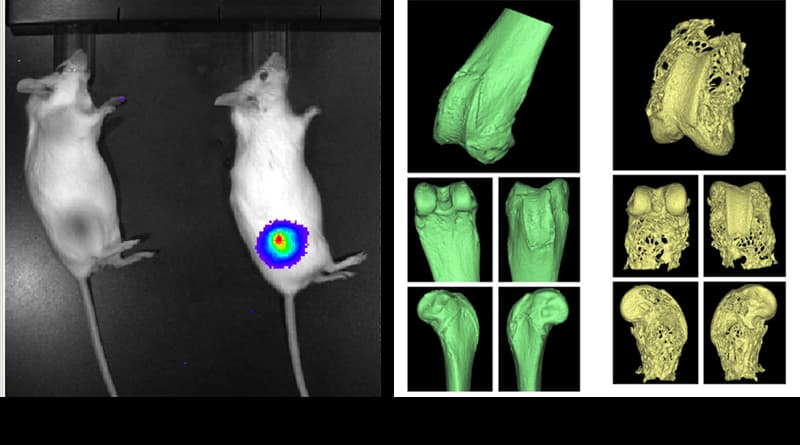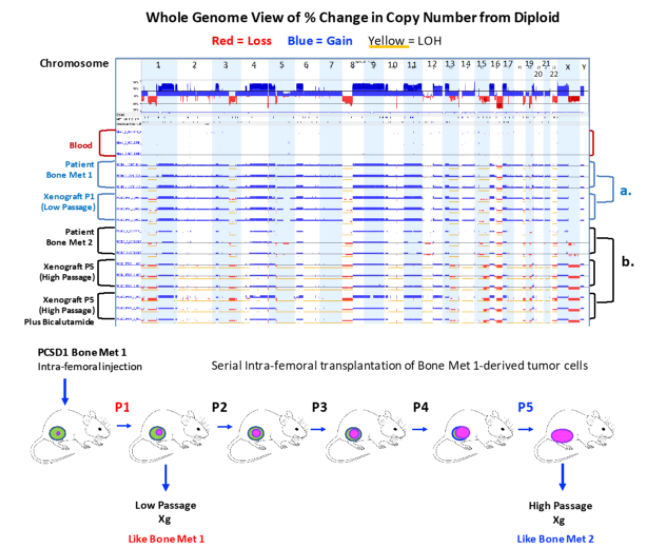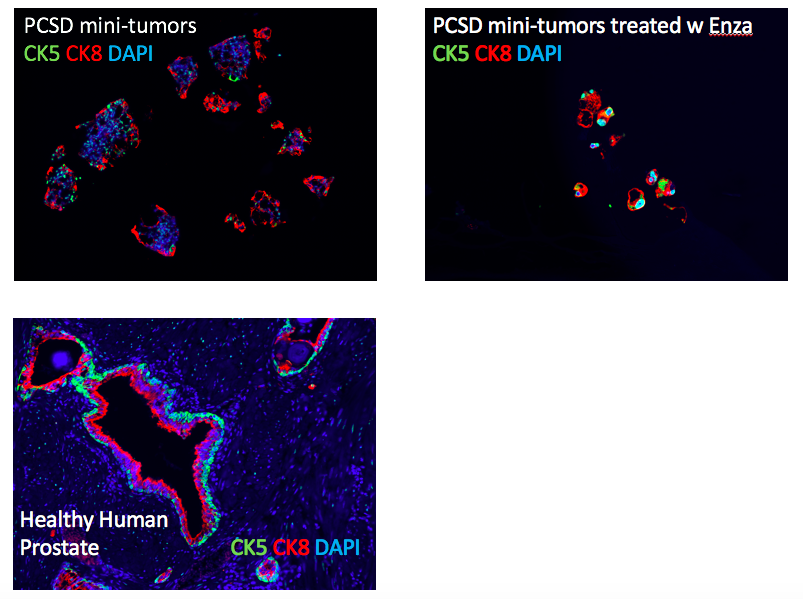About Our Research
Our lab's research is focused on elucidating mechanisms of therapy resistance in bone metastatic urologic cancers using patient-derived xenograft (PDX) models and 3D in vitro models. Through the use of genome-wide analyses of prostate cancer (PCa) tumors and primary patient-derived tumor models, our lab aims to translate next generation genomics on prostate cancers into practical applications and novel therapies that will improve and transform patient care.
Novel patient-derived xenograft models of bone metastatic prostate cancer.

There are currently few models to elucidate mechanisms of interaction between the bone microenvironment and prostate cancer because prostate cancer bone metastases are not often surgically removed. However, in cases in which the bone metastasis is causing a pathologic fracture, orthopaedic surgical repair is performed and the tumor tissue is removed. In collaboration with surgeons Drs Anna Kulidjian and Christopher Kane, our lab has used surgical bone metastasis tumor tissue to establish a new series of patient-derived xenograft (PDX) mouse models that closely recapitulate the bone metastatic disease seen in patients. These PDX models, known as the PCSD series, are being used to develop novel therapies for inhibiting prostate cancer growth in the bone-niche.
Genomic profiling of castration-resistant prostate cancer in the bone-niche.

The biorepository that the Jamieson lab has established, consists of patient surgical prostate cancer bone metastases from different stages of treatment within the same patients. The patient-derived primary samples and the PDX models derived from these patient specimens are being analysed in genome sequencing, transcriptome and proteasome studies.
PCSD Organoids IFC

